
The humble mushroom is well on its way to achieving superfood status. It is expanding beyond a seasonal foraged food to an ingredient that is popping up in categories from meat to medicine, addressing issues from mood to energy. We take a stronger look at the reasons behind the growing mushroom trends.
Consumer interest in mushrooms has always been higher than business interest (by 1.6x) since it is a popular ingredient used while cooking. It has gained more traction over the last couple of years as a substitute for meat due to its meaty texture and umami flavor as interest in plant-based lifestyles took off.
Business interest still has some catching up to do but there are signs that mushrooms will become an important ingredient for the packaged food space in the coming years. This is especially true in light of new research and technology that has expanded the functionalities of mushrooms in many ways.
Consumer interest in mushrooms has grown by 64% since 2019, while business interest grew by 19%

In the packaged food space, mushrooms are no longer just part of a prepared meal or fresh produce, they are emerging as functional ingredients across a number of categories, from beverages to confectionery.
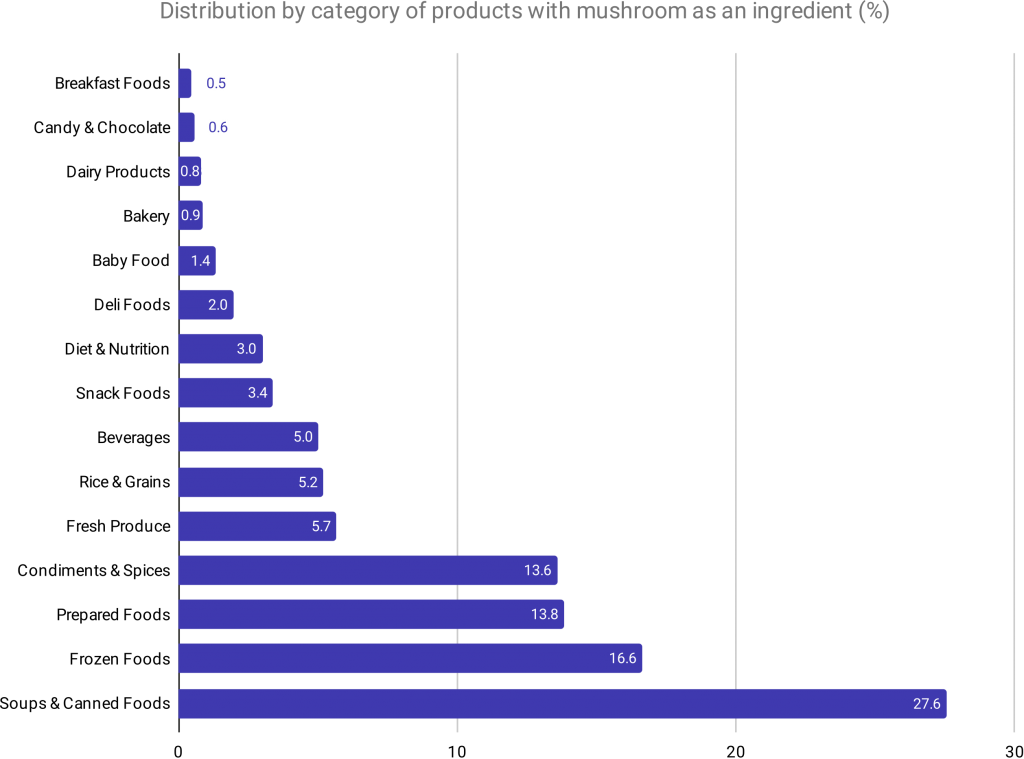
Log in to the Spoonshot platform to see what new product categories feature mushrooms and other mushroom trends on the rise.
Table of contents
List of top mushroom trends that are showing signs of growth
???? Functional fungi
The reason behind the growing interest in mushrooms is the range of health and functional benefits they offer. Mushrooms are rich in various nutrients and may even lower the risk of cancer. A recent study found that people who ate 18 grams of mushrooms as part of their daily diet had a 45% lower risk of cancer compared to those who did not eat mushrooms.
Consumers also associate mushrooms with a number of health benefits, based on our analysis of social media conversations on the health benefits of mushrooms.
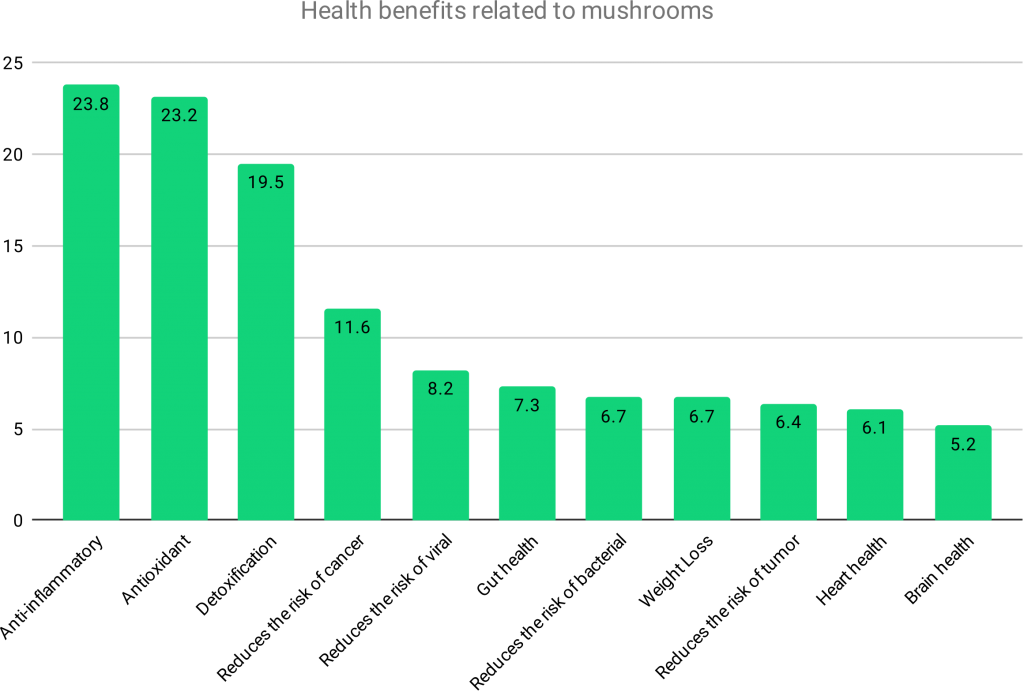
A couple of new areas where mushroom trends are going to be visible and will play an important role in the coming years are in the alternative proteins space and as adaptogens.
???? Mushrooms as a base for alt protein
Over the last couple of years, the meat alternatives industry has shown a lot of interest in mycelium – the building blocks that grow into various types of fungi (including mushrooms) – for its ability to be grown in different shapes (to resemble cuts of meat).
Companies like Meati Foods and Atlast Food Co. are growing mycelium at scale to make alternative protein products in whole cuts, like steak and bacon. Atlast Foods’ MyBacon was launched in late 2020 in a pilot run to test consumer reaction and the company recently received funding of US$40 million to expand production for B2B and distribution to consumers. Meati Foods is expected to launch its products in 2022 and has raised US$18 million to scale up production.
Atlast Food’s MyBacon is made from mycelium

Source: Spoonshot
The Curators, a UK-based meat start-up, has launched a range of meat alternative burgers and meatballs made from mushrooms. These products are made with button mushrooms and are said to have a mushroom content of 86%. The company said that the mushrooms are treated before they are blended to give a meaty texture.
Meat start-up The Curators expands its offerings with a range of meat alternatives made with mushrooms

???? Mushrooms as adaptogens
Another area we expect will see significant growth for mushroom trends is the functional foods space, particularly adaptogens.
Mushrooms were not really considered as functional foods till fairly recently.
Our analysis showed that between 2016 and 2018, there was a negative correlation between mushrooms and functional foods: -0.40. But, between 2019 and 2020, there was a high positive correlation between the two: 0.85
Now, we’re seeing a lot more interest in mushrooms as adaptogenic ingredients. Adaptogens are non-toxic herbs that can help the body adapt to physical and mental stressors. This is an important aspect of wellness since chronic exposure to stressors can have long-term impacts on health. Interest in adaptogens has grown over the last year as people look to better manage their stress and as brands capitalized on this interest.
Consumer interest in adaptogens grew by 17% over the last year, while business interest grew by 65%

Adaptogens have no clinical definition, but their use can be traced back to Ayurveda and Traditional Chinese medicine. They are now a growing fixture in the natural products industry. Research into adaptogens indicates that they may be able to offer a number of benefits, including anti-fatigue properties, enhancing attention, and preventing stress.
Must Read: Food and Drink Trends
Consumers do consider different types of mushrooms as having adaptogenic properties, based on an analysis of social media conversations about adaptogens.
Share of conversations about adaptogens that also talk about mushrooms
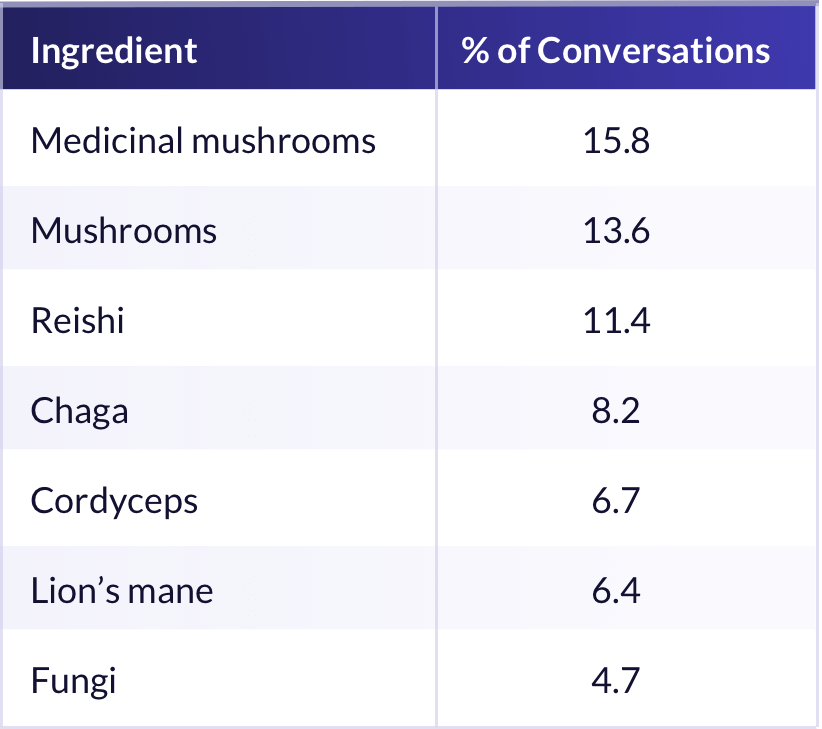
Other types of mushroom-like maitake and shiitake are also emerging ingredients in the functional foods space. Our proprietary data, which measures the novelty and popularity among consumers, shows that the following mushrooms are fairly novel ingredients and so have a moderate consumer liking score.
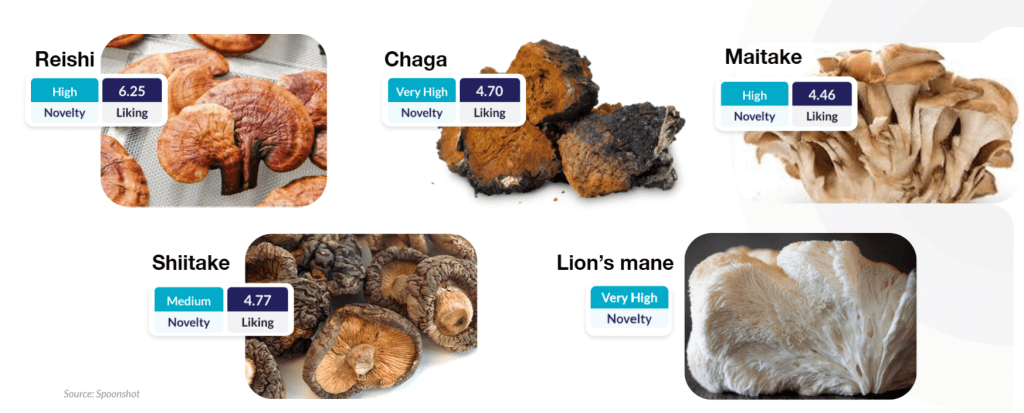
???? Cordyceps are a part of mushroom trends
One type of mushroom to watch out for in the coming years is cordyceps. This is a type of fungus that is grown in the Himalayan plateaus and is a prized ingredient in Traditional Chinese and Tibetan medicine for its many purported health benefits. It is considered to be one of the most expensive fungi, with a cost of over US$20,000 per kilo. Initial studies on cordyceps show that they might improve immunity by stimulation of cells and chemicals in the immune system.
Shroomshot’s latest product, launched in April 2021, incorporates 1,000mg of organic cordyceps with probiotics, adaptogenic Schisandra Berry, and caffeine from green tea into a shot format. This shot is positioned as offering clean energy and long-lasting endurance.
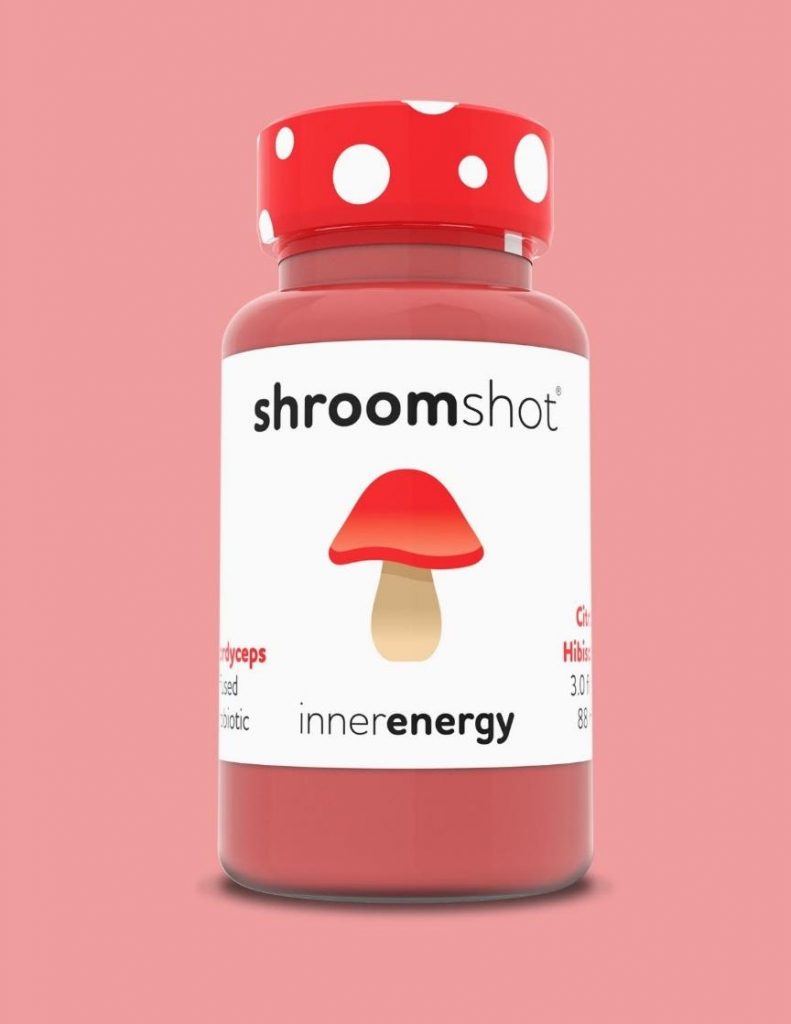
Another interest product incorporating adaptogenic mushrooms is Millie Gram’s range of nut butters. This is a product supported by SnackFutures, Mondelēz International’s innovation and venture hub, and is part of the company’s snacking focus called “ready-to-eat care”. This range is also a way to snackify nut butters.
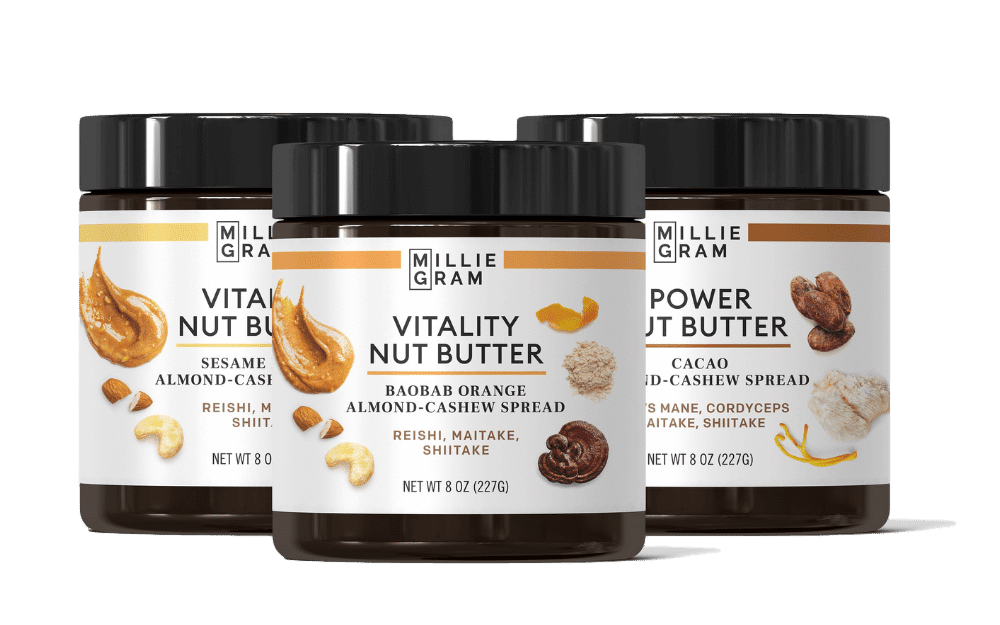
Xoma Mindful Mushroom Coffee, launched in April 2021, includes chaga, cordyceps and lion’s mane mushrooms, which are said to be a rich, low-calorie source of fiber, protein, and antioxidants. Xoma is the in-house coffee and superfood brand of Nexe Innovations, which is a manufacturer of plant-based packaging materials.
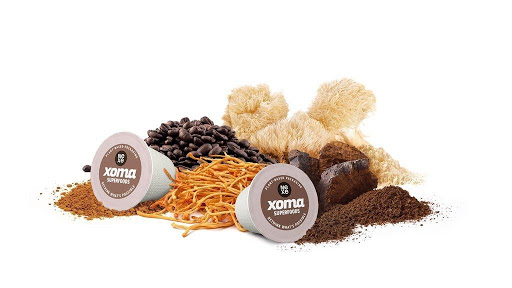
These products across various food and drink categories point to the versatility and functional potential of mushrooms, paving the way for future growth of this range of ingredients.



Leave a Reply